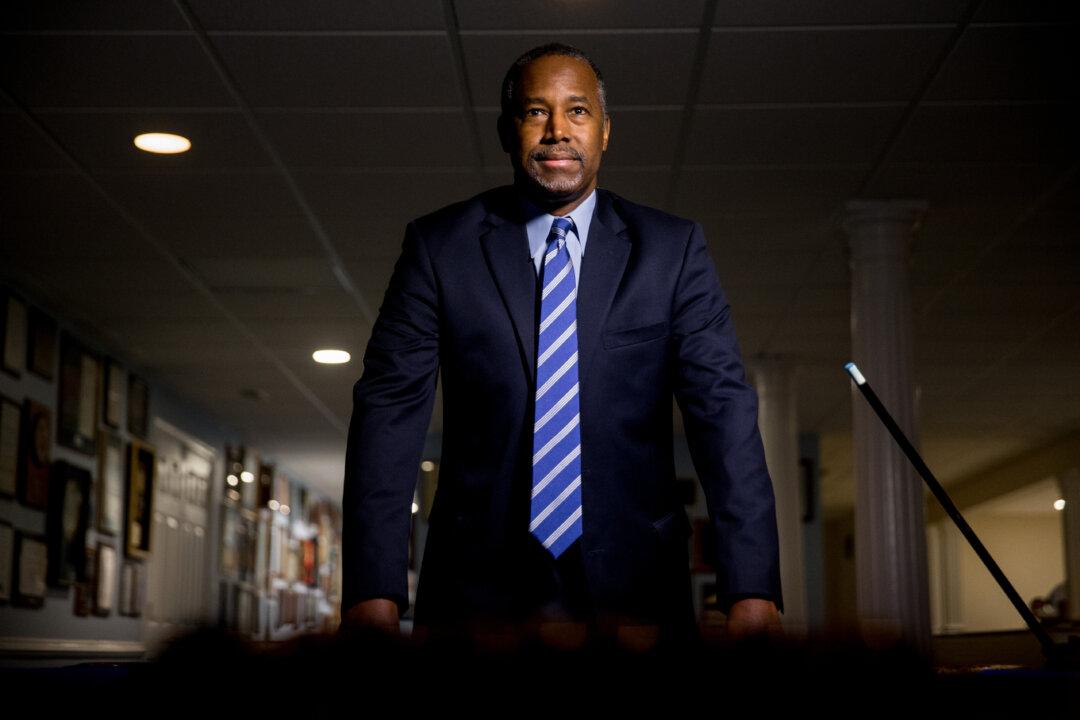WASHINGTON—Long before Ben Carson became one of the leading Republican presidential candidates, he built his own brand by traveling around the country raising money for a charity that bears his name, awarding college scholarships, promoting his books and earning hefty payments to speak to large groups.
Carson’s name and face adorn the walls of dozens of schools in the United States and a medical school in Nigeria. Mayors have handed him the keys to their cities. His charity, founded in 1994, created a national day in his honor each year, celebrated by the children who read in elementary school reading rooms named after him.
Carson’s political campaign has excelled at fundraising, bringing in almost $32 million through the end of September—more than any other 2016 Republican candidate. Speaking fees over a nearly two-year period raked in $4.3 million. And his nonprofit continues to raise money.
All of this is part of a well-honed enterprise that promotes Ben Carson as presidential candidate, political commentator, paid speaker, author, neurosurgeon, and champion of children, reading and God.
It’s hard to see where one Carson stops and another begins.
“I think as people get to know me they'll be able to see exactly who I am,” Carson said in an interview in late October. “I don’t worry about that.”
Boundaries
Carson’s campaign imposed boundaries to separate his politicking from a two-week publicity tour promoting his latest book. Since he declared his candidacy, more than 52,000 copies of versions of his signature book, “Gifted Hands,” have sold, according to industry statistics from Nielsen BookScan.





